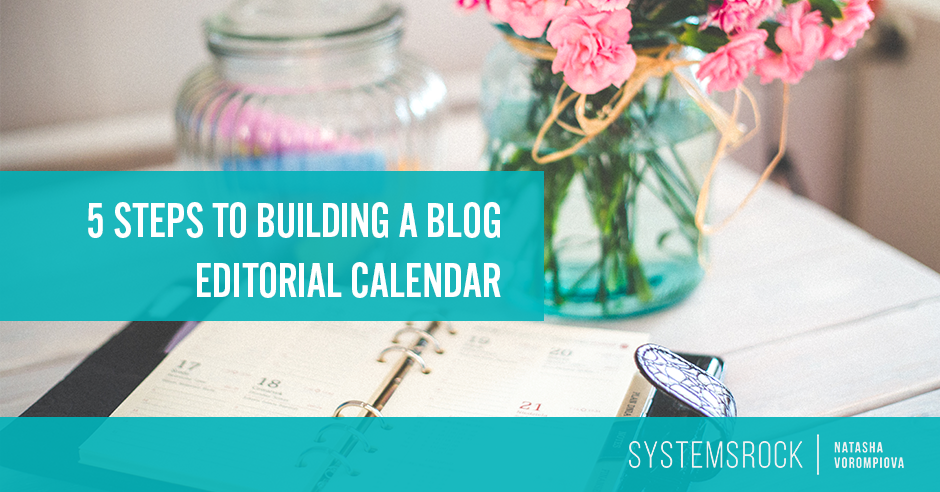
by Natasha | Nov 24, 2015 | Optimize Your Business, Organizational Tips
How many times have you read an e-mail and decided to answer it later only to find it unanswered in your Inbox 2 weeks later? Or what about the times that you had a great idea, wrote it down on a slip of paper on your desk and it got lost or forgot within a few days?

by Natasha | Oct 30, 2015 | Optimize Your Business, Organizational Tips, Productivity
What do you absolutely need to focus on if you’re serious about growing your business?
Marketing and sales? Social media? Customer service?
Actually, growth depends on something else. . .something you might not have realized or might be avoiding.
You’ve got to create systems—predetermined procedures for getting stuff done.
Systematizing can seem like the least of your worries. After all, as an entrepreneur, there’s always something else to do, another priority that has to be taken care of pronto.
It’s true.

by Natasha | Oct 2, 2015 | Optimize Your Business, Organizational Tips, Productivity
I’m a gadget girl. I’ll admit it. I still haven’t conquered my shiny object syndrome.
But sometimes, cool new gadgets are a distraction more than a helping hand. And sometimes, conventional tools used in creative ways can get you to brilliant solutions.
When it comes to systems for instance, my mission is to help my clients to get over the chaos, create clarity, and make impact. Because of this, I like to stick to three go-to tools.
by Natasha | Aug 18, 2015 | Just For Fun, Optimize Your Business, Organizational Tips
The story of Evernote for Small Business guide
Did I ever tell you how I came up with Evernote for Small Business guide idea? Actually, I was challenged to do that.
Once, in a conversation with Tara Gentile I made a comment in passing that Evernote is so powerful, you could run an entire business on it.
I just wanted to make a point that I don’t see the tools as a collection of features, but rather the ways you can put those features to use. But Tara, an Evernote fanatic, didn’t let me off the hook. Run a business on Evernote? She demanded that I create a resource to show how one could

by Natasha | Aug 11, 2015 | Experts Share, Optimize Your Business
Can I ask you a personal question?
Why do you blog for your business?
Don’t worry; if you don’t really know — you’re not alone.
Most online business owners understand that they need a blog for their business, but many don’t really know why.
In my humble opinion as a professional blogger and content director, if you are a business owner with a blog, your blog should be supporting your business, simple as that.
I mean, if you’re spending time writing a blog, shouldn’t it be doing something meaningful to support your business goals — like earning you leads or making you more sales?
But blogging like that requires a plan, a system…

by Natasha | Jun 30, 2015 | Delegation Fundamentals, Optimize Your Business, Productivity
So you’ve hired your new assistant and assigned her first few tasks. She’s completed them, and when you review them, you can’t help but feel disappointed with how they turned out.
You wonder to yourself, “Did I say something that didn’t make sense or did she just not know how to do what I was asking?”
It could be that adequate information wasn’t provided or that she got confused during the process.
Instead of letting this happen over and over again or letting your assistant go and reverting back to doing everything yourself, experiment with these three effective strategies for working with your new team member.






